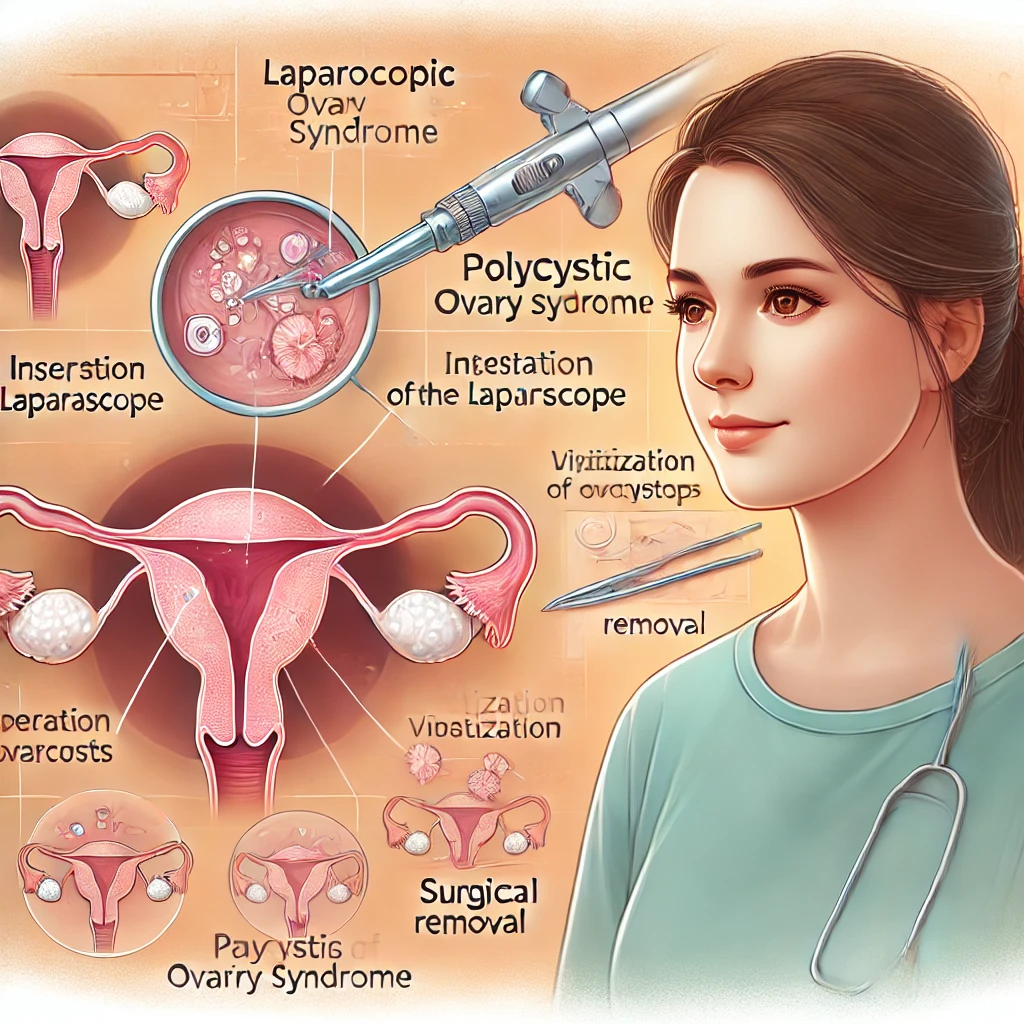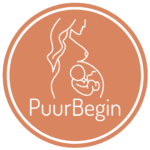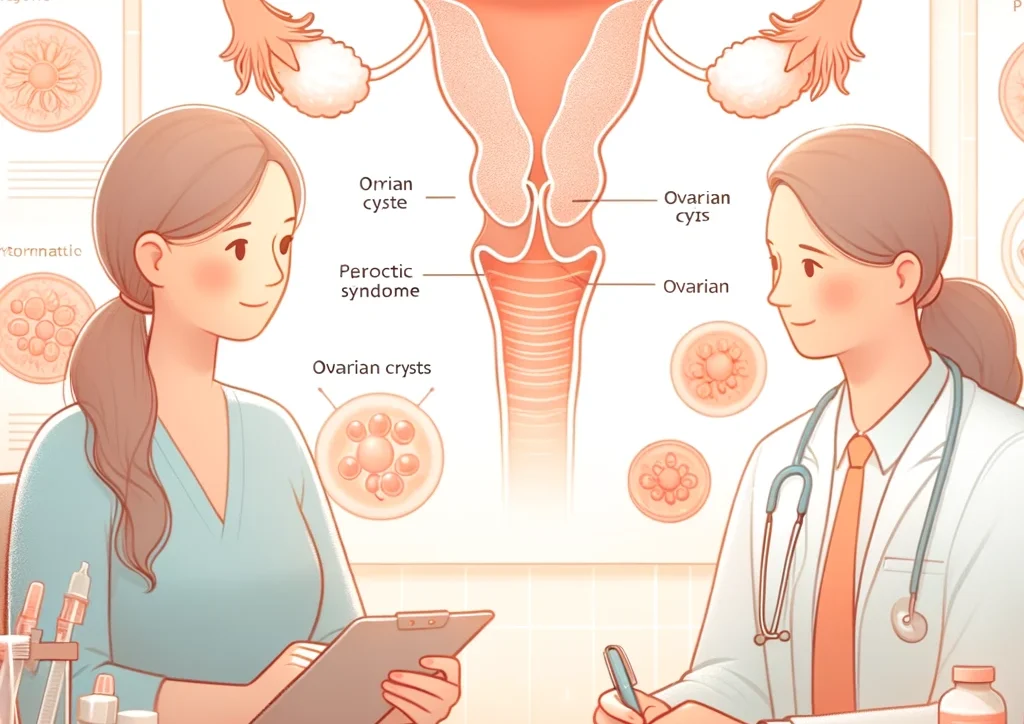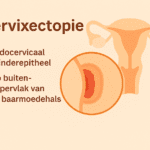Bij Verloskundigen PuurBegin begrijpen we dat zwanger worden soms een uitdagende reis kan zijn, vooral als je te maken hebt met Polycysteus Ovarium Syndroom (PCOS). PCOS is een veelvoorkomende hormonale aandoening die invloed kan hebben op je vruchtbaarheid en je menstruatiecyclus in de war kan brengen. Weet dat je niet alleen bent: veel vrouwen kampen met deze aandoening en weten vaak niet goed waar te beginnen.
In dit artikel willen we je graag voorzien van nuttige tips en handige informatie om je kansen op een zwangerschap te vergroten. Van levensstijlaanpassingen en voedingsadvies tot medische behandelingen en natuurlijke supplementen, we bespreken de verschillende mogelijkheden om je te ondersteunen op jouw weg naar het moederschap. Laten we samen deze uitdaging aanpakken en stap voor stap dichter bij jouw droom komen!
Wat is PCOS?

Polycysteus Ovarium Syndroom (PCOS) is een veelvoorkomende hormonale aandoening bij vrouwen. Het wordt gekenmerkt door de aanwezigheid van meerdere kleine cysten in de eierstokken, onregelmatige menstruatiecycli en een verhoogd niveau van mannelijke hormonen (androgenen). Dit kan resulteren in symptomen zoals gewichtstoename, acne, overmatige haargroei en moeite met zwanger worden. Bij PuurBegin hebben we veel ervaring met het begeleiden van vrouwen met PCOS.
| Symptomen | Details |
|---|---|
| Onregelmatige menstruatie | Veel vrouwen ervaren zeldzame of geen ovulatie |
| Hormonale onevenwichtigheden | Hoge niveaus van androgenen |
| Gewichtstoename | Met name rond de buikstreek |
Bovendien kunnen de oorzaken van PCOS variëren en zijn ze nog niet volledig begrepen. Sommige factoren zijn genetisch, terwijl andere gerelateerd zijn aan insulineresistentie. Gelukkig zijn er diverse behandelingsopties beschikbaar die kunnen helpen bij het beheersen van de symptomen en het bevorderen van de vruchtbaarheid. Deze omvatten medicatie, leefstijlveranderingen en soms chirurgie. Belangrijk is dat je begrijpt dat PCOS behandelbaar is en je niet alleen bent. Samen zetten wij bij PuurBegin de eerste stappen richting jouw kinderwens.
Normale hormoonhuishouding
Bij een werken je hormonen samen als een goed geoliede machine. Oestrogeen, progesteron en andere hormonen zijn in balans. Tijdens je menstruatiecyclus zorgen ze ervoor dat je lichaam zich perfect voorbereidt op een mogelijke zwangerschap. Hormonen die belangrijk zijn in deze cyclus zijn onder andere:
-
- Folliculair Stimulerend Hormoon (FSH): stimuleert de groei van eicellen in de eierstokken.
-
- Luteïniserend Hormoon (LH): zorgt voor de eisprong.
-
- Oestrogeen: bouwt het baarmoederslijmvlies op.
-
- Progesteron: houdt het baarmoederslijmvlies intact.
Wanneer deze processen optimaal verlopen, is zwanger worden een stuk eenvoudiger. Echter, bij PCOS is er vaak een verstoorde balans, wat tot problemen kan leiden. Maar maak je geen zorgen! Met de juiste aanpak en begeleiding kun je een gezonde zwangerschap bereiken. Bij Verloskundigen PuurBegin geloven we sterk in maatwerk en persoonlijke zorg. Wij bieden:
-
- Individueel advies
-
- Begeleiding door ervaren professionals
-
- Specifieke voedings- en bewegingsadviezen
Hormoonhuishouding bij PCOS
PCOS of het polycysteus ovariumsyndroom, beïnvloedt de hormoonbalans in je lichaam. Dit heeft vaak impact op je menstruatiecyclus en vruchtbaarheid. Bij PCOS kun je last krijgen van onregelmatige of helemaal geen ovulaties. Dit kan het moeilijker maken om zwanger te worden. Verder kunnen de niveaus van bepaalde hormonen, zoals insuline en testosteron, verhoogd zijn, waardoor je lichaam anders reageert dan normaal.
-
- Probeer een gezond gewicht te behouden. Gewicht speelt een cruciale rol bij hormoonhuishouding en kan een significant effect hebben op je vruchtbaarheid.
-
- Gebruik supplementen en medicatie. Bespreek met je verloskundige of arts welke supplementen, zoals inositol, nuttig voor je kunnen zijn. Medicatie zoals clomifeen kan ook helpen bij het stimuleren van ovulatie.
-
- Volg een insuline-resistentie dieet. Een dieet laag in suiker en geraffineerde koolhydraten, maar hoog in vezels, kan je helpen je insulineniveaus te balanceren.
| Hormoon | Effect |
|---|---|
| Testosteron | Verhoogde haargroei, acne |
| Insuline | Gewichtstoename, suikercravings |
Ondanks de uitdagingen van PCOS, zijn er nog steeds manieren om je kansen op een zwangerschap te vergroten. Ongelooflijk belangrijk is dat je goed voor jezelf zorgt: voldoende slaap, stressreductie en het vermijden van roken en overmatig alcoholgebruik kunnen positieve effecten hebben. Het is altijd verstandig om regelmatig met je verloskundige samen te werken om een individueel plan op te stellen. Zo vergroot je de kans op een succesvolle en gezonde zwangerschap.
Oorzaken PCOS
- Volg een uitgebalanceerd dieet met een lage glycemische index.
- Zorg voor voldoende lichaamsbeweging.
- Beperk de consumptie van bewerkte voedingsmiddelen.
| Factor | Impact |
|---|---|
| Genetica | Verhoogd risico |
| Hormonen | Onregelmatige cycli |
| Leefstijl | Beïnvloedbaar |
| Stress | Verstoorde balans |
Diagnose PCOS
-
- Bloedonderzoek: om hormonale onregelmatigheden op te sporen.
-
- Echografie: voor een gedetailleerd overzicht van je eierstokken.
-
- Medisch gesprek: om je symptomen en medische historie in kaart te brengen.
| Diagnostische Methode | Doel |
|---|---|
| Bloedonderzoek | Controleren van hormoonniveaus |
| Echografie | In beeld brengen van eierstokken |
| Medisch gesprek | Bespreken van symptomen |
PCOS en zwanger worden
| Supplement | Voordelen |
|---|---|
| Inositol | Verbeterde insulinegevoeligheid |
| Omega-3 | Ontstekingsremmend |
| Vitamine D | Beter immuunsysteem |
Afvallen
-
- Eet meer vezelrijke voedingsmiddelen zoals groenten, fruit en volle granen.
-
- Beperk de inname van suikers en ongezonde vetten.
-
- Drink voldoende water om je lichaam gehydrateerd te houden.
Naast een gezond dieet, kan regelmatige lichaamsbeweging een positieve invloed hebben op gewichtsverlies en hormonale balans. Het is aanbevolen om minstens 30 minuten per dag te bewegen. Dit kan variëren van een stevige wandeling tot een intensieve cardio workout. Bovendien kunnen yoga en pilates zeer nuttig zijn om stress te verminderen en flexibiliteit te verbeteren. Zoals blijkt uit diverse onderzoeken, kan stress namelijk een negatieve invloed hebben op hormonale balans en vruchtbaarheid.
| Dieet Tips | Voordelen |
|---|---|
| Koolhydraatarm eten | Stabiele bloedsuikerspiegel |
| Vezelrijke voeding | Verbeterde spijsvertering |
| Voldoende water drinken | Optimaal metabolisme |
Tabletten (clomifeencitraat)

Bij PCOS kan het gebruik van clomifeencitraat, een ovulatie-inductor, helpen om de ovulatie te stimuleren. Dit medicijn wordt vaak voorgeschreven aan vrouwen die moeite hebben met ovuleren. Het is belangrijk om te weten dat je deze tabletten meestal inneemt op specifieke dagen van je menstruatiecyclus, vaak zo rond dag 3 tot 7. Hoewel dit medicijn voor veel vrouwen effectief kan zijn, is het niet zonder bijwerkingen. Denk hierbij aan opvliegers, misselijkheid of gevoelens van duizeligheid. Daarom is het cruciaal om regelmatig met je verloskundige of arts te overleggen tijdens deze behandeling.Naast het gebruik van medicatie, zijn er andere praktische tips die je kunnen ondersteunen:
-
- Gezond dieet: Zorg voor een dieet rijk aan vezels en eiwitten en vermijd overmatige suikerinname.
-
- Beweging: Regelmatige lichaamsbeweging kan helpen om je hormonen in balans te houden.
-
- Stressmanagement: Overweeg yoga of mindfulness om stress te reduceren.
| Dag van cyclus | Dosis clomifeencitraat |
|---|---|
| Dag 3-7 | 50 mg |
| Dag 3-7 (indien nodig) | 100 mg |
Op deze manier creëer je een holistische benadering om de kans op zwangerschap te vergroten. Bereid je goed voor en vergeet niet om je verloskundige op de hoogte te houden over je voortgang en eventuele bijwerkingen!
Injecties (gonadotrofine)
Bij het omgaan met PCOS kan het injecteren van gonadotrofinen een effectieve manier zijn om de ovulatie te stimuleren. Gonadotrofinen zijn injecteerbare hormonen die de eierstokken stimuleren om eitjes te laten rijpen en vrij te geven. Deze behandelmethode is vaak een volgende stap als clomifeentherapie niet effectief is gebleken. Door de reguliere monitoring van jouw bloedwaarden en eierstokken via echografie, kunnen artsen de dosering op jouw lichaam afstemmen, wat de kans op een succesvolle zwangerschap vergroot.
Er zijn verschillende soorten gonadotrofinen beschikbaar. Hier is een overzicht van enkele veelgebruikte soorten:
-
- FSH (Follikelstimulerend hormoon): Stimuleert de groei en rijping van de follikels in de eierstokken.
-
- LH (Luteïniserend hormoon): Bevordert de ovulatie en het vrijkomen van het rijpe eitje.
-
- HCG (Humaan Choriongonadotrofine): Wordt vaak gebruikt om de ovulatie te triggeren.
De procedure kan wat intimiderend lijken, maar met de juiste begeleiding wordt het proces minder stressvol. Hier zijn enkele tips om het je gemakkelijker te maken:
-
- Volg nauwgezet de instructies van je arts over hoe en wanneer je de injecties moet toedienen.
-
- Gebruik een vast tijdstip voor het injecteren, zodat je het niet vergeet.
-
- Raak vertrouwd met de techniek door te oefenen met een verpleegkundige of via online tutorials.
-
- Denk aan je doel: het krijgen van een gezonde zwangerschap!
Hieronder vind je een kort overzicht van de behandelingsprocedure met bijbehorende hulpmiddelen:
| Stap | Hulpmiddel |
|---|---|
| 1. Consult | Medische begeleiding |
| 2. Injecties | Gonadotrofinen |
| 3. Monitoring | Echografie en bloedtesten |
| 4. Ovulatietigger | HCG injectie |
| 5. Zwangerschapstest | Urine of bloedtest |
Kijkoperatie (LEO)

-
- Verhoogde kans op ovulatie
-
- Verbeterde hormoonbalans
-
- Mogelijk minder noodzaak voor medicatie
Echter, zoals bij elke medische ingreep, zijn er risico’s die besproken moeten worden met je zorgverlener. Denk aan:
-
- Infecties of complicaties
-
- Niet gegarandeerde resultaten
-
- Herstelperiode na de operatie
| Voordelen | Nadelen |
|---|---|
| Verbeterde vruchtbaarheid | Risico op infectie |
| Minder medicatie | Onzekerheid van resultaat |
| Betere hormoonbalans | Herstelperiode |
Metformine
is een veelgebruikt medicijn bij vrouwen met PCOS die proberen zwanger te worden. Het helpt de insulineresistentie te verminderen, wat een veelvoorkomend probleem is bij PCOS. Hierdoor kan je menstruatiecyclus regelmatiger worden, wat essentieel is voor het plannen van een zwangerschap. Daarnaast, bevordert het de ovulatie, geeft meer controle en verhoogt het de kans op succes. Terwijl veel vrouwen baat hebben bij dit medicijn, is het belangrijk om met je zorgverlener te overleggen voordat je begint. Zo zorg je ervoor dat het veilig en effectief is voor jouw situatie.
Voordelen van :
-
- *Minder insulineresistentie*
-
- *Regelmatigere menstruatiecyclus*
-
- *Betere ovulatie*
Helaas, kent het ook enkele bijwerkingen zoals maagproblemen en vermoeidheid. Maar, dit weegt meestal niet op tegen de voordelen. Bespreek altijd met jouw arts of verloskundige hoe je je het best kunt voorbereiden. Al met al, kan dit medicijn een effectieve manier zijn om een stap dichter bij je kinderwens te komen.
| Voordelen | Bijwerkingen |
|---|---|
| Verbeterde insulinegevoeligheid | Maagproblemen |
| Regelmatiger menstruatie | Vermoeidheid |
IVF

-
- Zorg goed voor jezelf: Een gezond dieet en voldoende rust zijn cruciaal.
-
- Praat met anderen: Zoek steun bij een partner, vrienden of een counselor.
-
- Blijf positief: Hoewel de reis soms zwaar is, onthoud dat velen je voorgingen met succes.
Daarnaast zijn er enkele handige tips om de kans op succes te vergroten:
| Tip | Beschrijving |
|---|---|
| Gezonde voeding | Een gebalanceerd dieet kan de vruchtbaarheid bevorderen. |
| Regelmatige check-ups | Houd regelmatig contact met je arts voor de beste zorg. |
| Mindfulness | Stressvermindering kan positieve effecten hebben op het -proces. |
Het is belangrijk om hoopvol te blijven en jezelf toe te staan emoties te uiten tijdens het proces. Weet altijd dat Verloskundigen PuurBegin er is om je te ondersteunen.
Overige PCOS-symptomen en behandeling
Sommige symptomen van PCOS gaan vaak verder dan onregelmatige menstruatiecycli en vruchtbaarheidsproblemen. Je kunt last krijgen van gewichtstoename, overmatige haargroei (hirsutisme) en zelfs acne. Verder kunnen vrouwen met PCOS haarverlies ervaren, vergelijkbaar met mannelijke kaalheid. Gelukkig zijn er verschillende manieren om deze bijkomende symptomen te behandelen. Allereerst kan een uitgebalanceerd dieet en regelmatige lichaamsbeweging het gewicht helpen beheersen, wat op zijn beurt de symptomen van PCOS kan verminderen. Daarnaast kan medicatie zoals metformine helpen om de insulinegevoeligheid te verbeteren en gewichtsverlies te bevorderen.
Behandelingen variëren sterk, afhankelijk van de specifieke symptomen en hun ernst. In veel gevallen kan hormonale therapie, zoals anticonceptiepillen, helpen om hormonale schommelingen te reguleren. Voor hirsutisme en acne kunnen alternatieve medicijnen, zoals anti-androgenen, nuttig zijn. Overweeg ook regelmatig overleg met je zorgverlener om te evalueren welke behandelingen het meest effectief voor jou zijn. Hieronder vind je een overzicht van enkele behandelingsopties:
-
- Dieet en Beweging: Levensstijlveranderingen die vaak aanbevolen worden.
-
- Metformine: Medicatie die helpt bij de insulinegevoeligheid.
-
- Hormonale Therapie: Voor het reguleren van de menstruatiecyclus en het verminderen van symptomen.
-
- Anti-Androgenen: Voor de behandeling van hirsutisme en acne.
-
- Regelmatig Medisch Overleg: Essentieel voor persoonlijke aanpassingen in de behandeling.
| Symptoom | Behandeling |
|---|---|
| Gewichtstoename | Dieet + Beweging |
| Hirsutisme | Anti-Androgenen |
| Onregelmatige cycli | Hormonale Therapie |
Overbeharing
-
- Laserontharing: Dit is een populaire optie omdat het lange termijnresultaten biedt.
-
- Epileren en waxen: Voor tijdelijk haarverwijdering.
-
- Medische behandeling: Sommige medicijnen kunnen de haargroei verminderen.
-
- Natuurlijke remedies: Denk aan kruiden zoals spearmint thee, die kunnen helpen bij het reguleren van hormonen.
Bovendien zijn er levensstijlveranderingen die je kunt overwegen. Gewichtsverlies kan bijvoorbeeld de hormoonbalans verbeteren en zo de symptomen van PCOS, inclusief , verminderen. Gezonde voeding en regelmatige lichaamsbeweging kunnen hier aanzienlijk aan bijdragen. Tot slot is het goed om te weten dat je er niet alleen voor staat; praat met je verloskundige of arts. Zij kunnen advies geven en samen met jou een plan maken om met de symptomen om te gaan.
Acné
Een van de minder besproken symptomen van PCOS tijdens de zwangerschap is de toename van . Hormoonschommelingen kunnen ervoor zorgen dat je huid gevoeliger wordt voor puistjes en onzuiverheden. Hoewel dit ongemakkelijk kan zijn, zijn er enkele tips die je kunt volgen om je huid gezond te houden. Probeer een milde reiniger te gebruiken die je huid niet uitdroogt. Het is ook belangrijk om producten te vermijden die olie bevatten, omdat deze je poriën kunnen verstoppen. Hier zijn enkele praktische tips om je huid beter te verzorgen:
-
- Gebruik altijd een zachte, niet-schurende exfoliant.
-
- Blijf uit de zon en gebruik zonnebrandcrème die geen poriën verstopt.
-
- Eet voedingsmiddelen die rijk zijn aan antioxidanten, zoals bessen en groene groenten.
-
- Drink veel water om je huid gehydrateerd te houden.
-
- Vermijd stress zo veel mogelijk door bijvoorbeeld yoga of meditatie te beoefenen.
Verder, als je merkt dat je ondanks je inspanningen niet verbetert, kan een bezoek aan een dermatoloog geen kwaad. Een professional kan specifieker advies geven dat aansluiten bij jouw huidtype en -problemen. Hieronder vind je enkele producten die vaak effectief zijn tegen tijdens de zwangerschap:
| Product | Voordelen |
|---|---|
| Salicylzuur Cleanser | Reinigt diep zonder de huid uit te drogen |
| Tea Tree Oil Serum | Vermindert ontstekingen en roodheid |
| Niacinamide Lotion | Reguleert de talgproductie |
Onregelmatige menstruatiecyclus
Een van de meest voorkomende symptomen van PCOS is een . Dit kan frustrerend zijn als je probeert om zwanger te worden, omdat je minder vaak ovuleert. Gelukkig zijn er enkele strategieën die je kunnen helpen om je menstruatiecyclus te reguleren. Zorg er eerst voor dat je een gezond dieet volgt en regelmatig lichaamsbeweging krijgt. Gewicht verliezen, zelfs slechts enkele kilo’s, kan helpen de effecten van PCOS te verminderen en je cyclus regelmatiger te maken. Overweeg ook supplementen zoals inositol, die hebben aangetoond dat ze de hormonale balans kunnen verbeteren.
Daarnaast kan het nuttig zijn om zowel natuurlijke als medische behandelingsopties te verkennen. Clomid en Letrozol zijn medicijnen die vaak worden voorgeschreven om de ovulatie te stimuleren. Overleg met je verloskundige welke optie het beste bij je past. Weet dat je niet de enige bent die hiermee worstelt en dat er steeds meer onderzoek en steun beschikbaar is. Hier zijn enkele aanbevelingen:
- Slaap voldoende: Regelmatige slaap helpt je hormonale balans te herstellen.
- Vermijd stress: Probeer yoga of meditatie om je stressniveaus te verlagen.
- Gebruik een ovulatietest: Dit kan je helpen te bepalen wanneer je het vruchtbaarst bent.
Vergeet bovendien niet dat het communiceren met je zorgverlener essentieel is. Zij kunnen je helpen met gepersonaliseerd advies en, indien nodig, doorverwijzen naar een specialist. Voor een overzicht van veelgebruikte medicijnen en hun bijwerkingen, zie de onderstaande tabel.
| Medicijn | Functie | Mogelijke bijwerkingen |
|---|---|---|
| Clomid | Stimuleert ovulatie | Stemmingswisselingen, hoofdpijn |
| Letrozol | Helpt bij ovulatie | Misselijkheid, vermoeidheid |
Overgewicht
kan een aanzienlijke invloed hebben op je vruchtbaarheid, vooral als je PCOS hebt. Het kan namelijk de hormonale balans in je lichaam verstoren, waardoor het nog moeilijker wordt om zwanger te raken. Het is daarom belangrijk om aandacht te besteden aan een gezond dieet en regelmatige lichaamsbeweging. Voedingsadvies dat we vaak geven, omvat:
-
- Het beperken van suikerrijke voedingsmiddelen
-
- Het eten van voldoende vezels
-
- Gezonde vetten toevoegen, zoals avocado en noten
Daarnaast speelt regelmatige lichaamsbeweging ook een cruciale rol. Dit hoeft niet intensief te zijn; een dagelijkse wandeling of een paar keer per week yoga kan al een groot verschil maken. Een gezonde BMI behalen kan je kansen op succes aanzienlijk verhogen. Onze ervaring heeft geleerd dat vrouwen die een gezond gewicht nastreven, vaak sneller resultaat zien. Daarom leveren wij altijd op maat gemaakt advies zodat je je doelen gemakkelijker kunt bereiken.
| Gewichtscategorie | Verbetert vruchtbaarheid | Duurzaamheid |
|---|---|---|
| Ondergewicht | ❌ | 72% |
| Gezond gewicht | ✔️ | 85% |
| Obesitas | ❌ | 50% |
Miskraam
Wanneer je PCOS hebt, is het risico op een helaas hoger. Dit kan buitengewoon pijnlijk en frustrerend zijn, vooral als je net hoop begint te koesteren over je zwangerschap. Bepaalde factoren kunnen het risico op een verhogen. Bijvoorbeeld, een onregelmatige cyclus kan ervoor zorgen dat de baarmoederwand niet optimaal is voorbereid op het innestelen van een embryo. Daarnaast kunnen hormonale disbalansen een rol spelen. Daarom is het belangrijk om regelmatig contact te houden met je verloskundige en eventuele problemen direct te bespreken.
Gelukkig zijn er enkele strategieën die je kunt volgen om het risico te verkleinen. Denk bijvoorbeeld aan een gezond voedingspatroon en het vermijden van stress. Hier zijn enkele suggesties die je kunnen helpen:
-
- Eet voedingsrijke maaltijden die rijk zijn aan foliumzuur
-
- Vermijd alcohol en cafeïne
-
- Beweeg regelmatig, zoals dagelijkse wandelingen
-
- Sla genoeg slaap op regelmatige tijden
Daarnaast kan het nuttig zijn om tijdens je zwangerschapsperiode regelmatig medische controles te ondergaan om mogelijke complicaties vroegtijdig te signaleren. Onthoud, er is altijd hulp beschikbaar en je staat er niet alleen voor.
Stemmingsstoornissen zoals depressie

Bij vrouwen met PCOS kunnen vaker voorkomen. Hormoononbalans en insulineresistentie kunnen tijdens de zwangerschap je stemming beïnvloeden. Bovendien kunnen externe factoren zoals de stress bij het proberen zwanger te worden, financiële zorgen en relatieproblemen een rol spelen. Het is cruciaal om jezelf goed te verzorgen en professionele hulp te zoeken als je tekenen van een depressie opmerkt. Dit kan variëren van gesprekken met een psycholoog tot ondersteuningsgroepen waar je ervaringen kunt delen.
Om je mentale gezondheid te ondersteunen, raden we aan om de volgende strategieën te overwegen:
-
- Regelmatige lichaamsbeweging zoals wandelen of yoga
-
- Gezonde voeding met aandacht voor uitgebalanceerde maaltijden
-
- Meditatie en mindfulness oefeningen
-
- Open communicatie met je partner en familie
Deze maatregelen kunnen helpen je stemming te stabiliseren en je emotionele welzijn te bevorderen. Onthoud dat je niet alleen bent; vele vrouwen in dezelfde situatie hebben baat gehad bij deze aanpak. Zo kun je een gezonde en gelukkige zwangerschap ervaren ondanks de uitdagingen van PCOS.
Samenvatting
Bedankt voor het lezen van ons artikel “Zwanger worden met PCOS: Tips en Handige Informatie”. We hopen dat je nu een beter beeld hebt van de uitdagingen én mogelijkheden rondom zwanger worden met PCOS. Vergeet niet: elke vrouw is uniek en wat voor de één werkt, hoeft niet hetzelfde effect te hebben voor een ander.
Bij Verloskundigen PuurBegin staan we altijd klaar om je te ondersteunen en adviseren, ongeacht jouw situatie. Heb je nog vragen of wil je persoonlijk advies? Twijfel dan niet om contact met ons op te nemen. Ons warme en deskundige team helpt je graag verder op weg naar een gezonde en gelukkige zwangerschapsreis. Samen komen we er wel!
Blijf op de hoogte!
Volg ons op social media voor het laatste nieuws en een kijkje achter de schermen bij Verloskundigen PuurBegin in Kampen.
Ontdek de dagelijkse avonturen van onze verloskundigen, waardevolle tips voor aanstaande ouders en inspirerende verhalen uit de praktijk.
Klik op de onderstaande knoppen en blijf verbonden met ons hartverwarmende team!
 |
 |
Hartelijke groet,
Verloskundigen PuurBegin
Adres: Orkestlaan 148, 8265RC Kampen
Telefoon: 085 40 19 095








